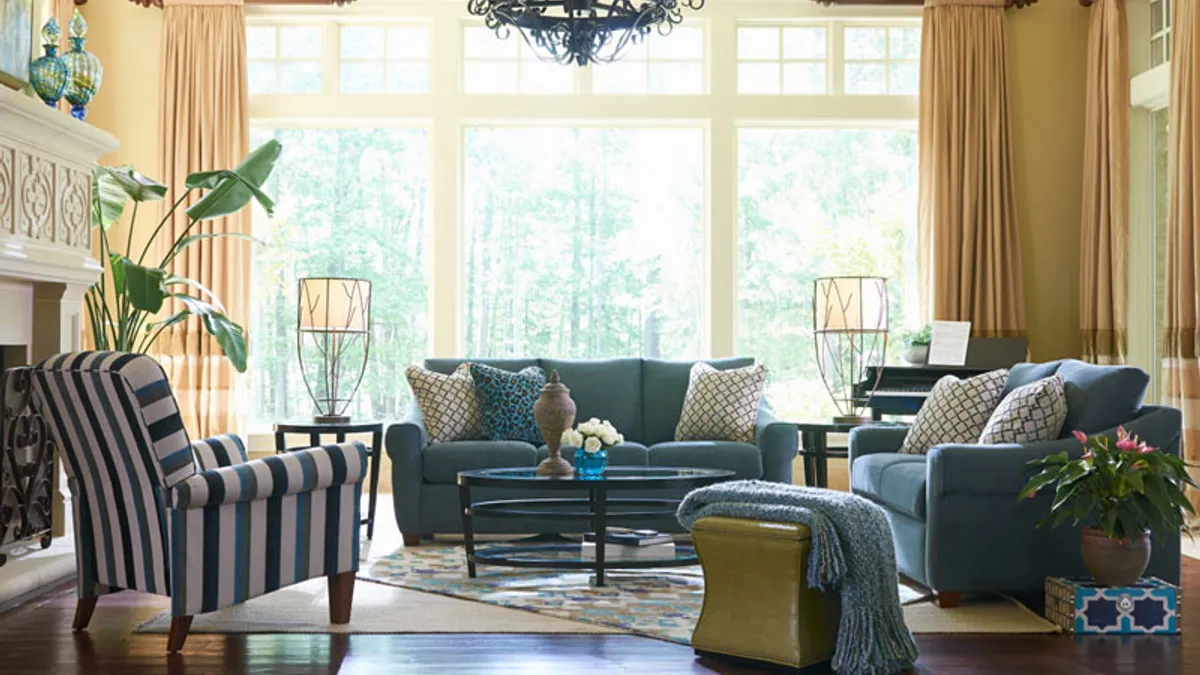Dive Brief:
- La-Z-Boy CEO Kurt Darrow last week revealed new details on how, exactly, it plans to boost the performance of its newly-acquired brand, Joybird — by letting it capitalize on the company's supply chain.
- "As Joybird's growth has been constrained by limited capital and production capacity, we will combine our world-class supply chain including nationwide delivery capabilities with its current manufacturing operations," Darrow said during an earnings call.
- The access should help Joybird improve production speed, shorten delivery times, and lower costs. Currently, Joybird serves its U.S. customers from its manufacturing facility in Tijuana, "so you can imagine there is a lot of excessive freight cost to be able to do that," Darrow said.
Dive Insight:
The first questions executives often face after an acquisition — beyond the sticker price — regarding the synergies: How, exactly, will the two companies combine operations, and how much cost will the purchase save over time?
When it comes to La-Z-Boy's purchase of Joybird, Darrow argues the acquisition can not only save on costs over time, but also bolster growth by removing capital roadblocks to expansion.
La-Z-Boy offers Joybird a brick-and-mortar footprint of 351 stores, access to an expanding manufacturing plant in Dayton, Tennessee, and a widespread regional distribution center for nationwide delivery.
In return, Joybird offers La-Z-Boy a brand popular with the millennial and Gen X generations, and proven e-commerce expertise.
"Our strategic bet here to start with is: this is a new customer for us, a younger customer that the La-Z-Boy line isn't strong in, and it's in a channel that is not for a brick-and-mortar retailer, that we're not doing the percentage of business that we think we should," Darrow said on the call as transcribed by Seeking Alpha.
In that sense, long-time furniture industry observers have likened the purchase to Walmart's acquisition of Jet.com — pairing an industry powerhouse with e-commerce ambitions with a young, digital native lacking sufficient infrastructure or capital to expand.
It's easy to see the allure for Joybird, too. The furniture retail sector is facing different challenges than the consumer-packaged goods or apparel sectors. Simply put, furniture brick-and-mortar sales are not slowing down — but neither are their e-commerce sales, signaling a strong benefit to a multichannel retail approach.
La-Z-Boy is still working on growing its supply chain network. In fiscal year 2019, it expects to spend $50 to $60 million on a plant expansion in England, upgrades at its Dayton, Tennessee manufacturing facility, a new corporate office and to relocate one of its regional distribution centers.
"With the acquisition of Joybird, we have solidified the third pillar of our e-commerce initiatives," Darrow said on the call. Full integration — of systems, new product launches, etc. — will take time, "but I think as we get through the next six months or so, we will get a lot of the integration done, maybe not all of it, but I can assure you Joybird wants to move faster than La-Z-Boy is used to doing."














